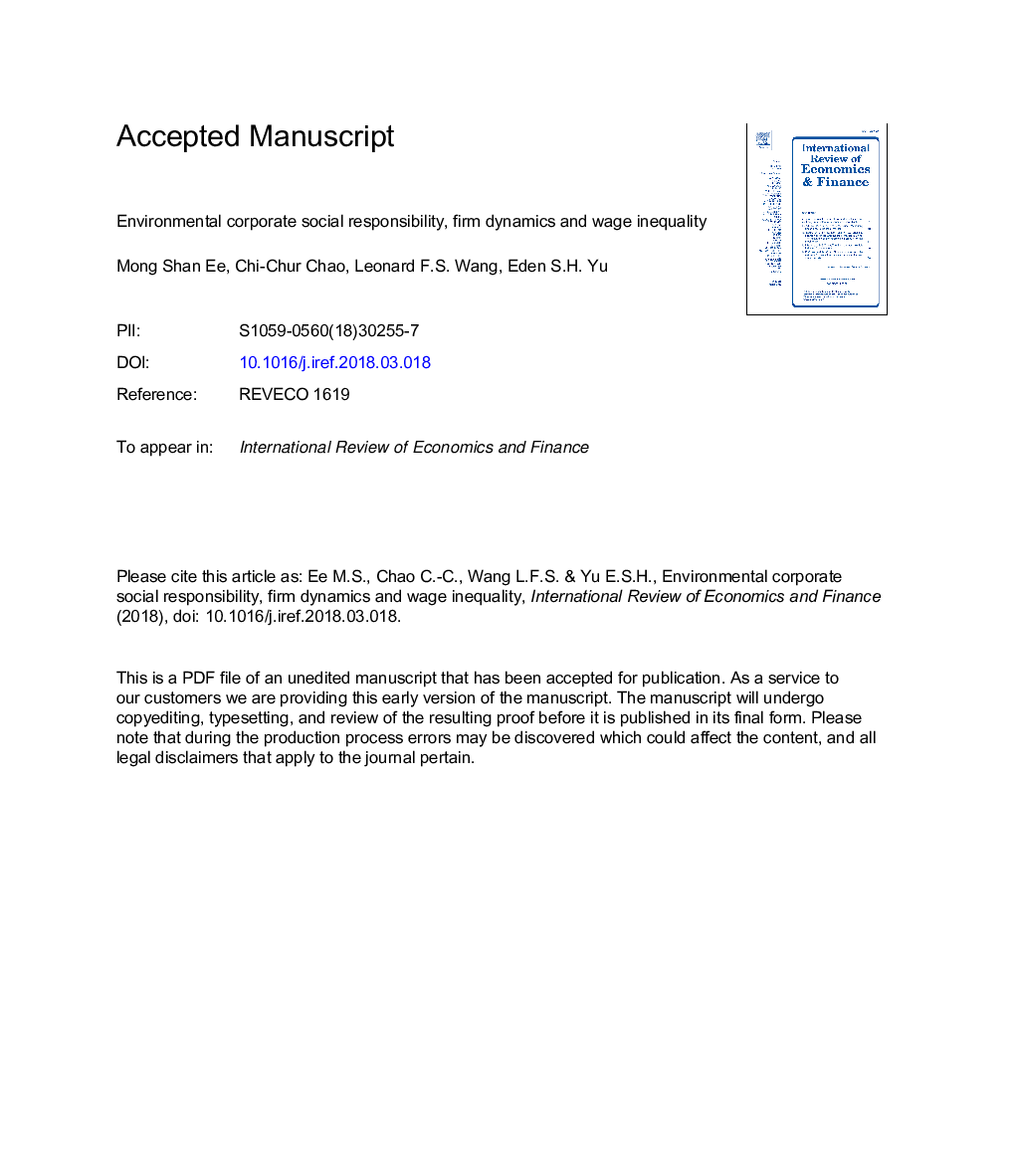| Article ID | Journal | Published Year | Pages | File Type |
|---|---|---|---|---|
| 7355404 | International Review of Economics & Finance | 2018 | 31 Pages |
Abstract
Based on a general-equilibrium framework, this paper examines the income distributional effect of firms which commit to environmental corporate social responsibility (ECSR) investments. In the short run with fixed number of firms, ECSR investment raises capital rental cost and hence widens wage inequality between skilled and unskilled workers via the factor substitution effect, while the increased capital cost causes firms to exit in the long run. This releases capital and hence lowers the capital rental cost. Thus, the wage gap can be mitigated or even narrowed by a rise in unskilled wage and a drop in skilled wage via the firm-exit effect. This theoretical prediction is confirmed by the empirical result.
Related Topics
Social Sciences and Humanities
Economics, Econometrics and Finance
Economics and Econometrics
Authors
Mong Shan Ee, Chi-Chur Chao, Leonard F.S. Wang, Eden S.H. Yu,
